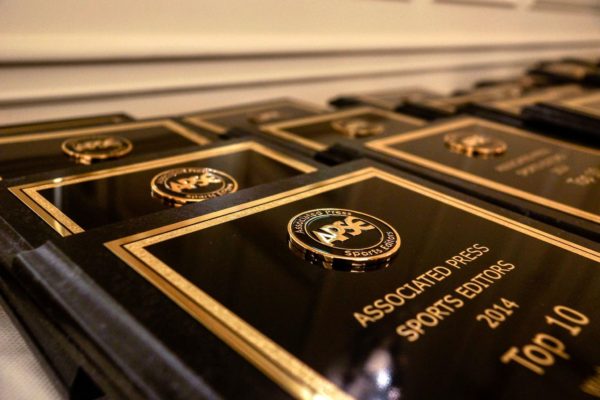By Ana Cuello, Orlando Sentinel
Michael Anastasi had high expectations for his year of leadership as APSE President.
“I wanted to do something that would really address a great need,” Anastasi said. “APSE has a long history of supporting diversity efforts in different ways, but it’s always been focused at a student-level.”
“I wanted to make sure we were able to do something for the mid-career professional and building another program specifically focused on management.”
These ideas formed the basis of the APSE Diversity Fellowship Program, which aims at increasing the number of women and people of color in the sports journalism industry and “creating as many outstanding candidates as possible for when job openings arise,” Anastasi said.
Anastasi first announced the program during his speech at the 2011 Boston Convention, where he shared his dream of having the first graduates of the Diversity Fellowship Program standing next to him at the next convention.
Ed Guzman, Sports Copy Chief of the Washington Post and a Fellow of the program’s initial class, recalls reading Anastasi’s speech the morning after it was given.
“It was an incredible moment, just thinking, ‘Wow, he’s talking about me,’” Guzman said. “He was talking about mid-career journalists, and it was unbelievable knowing that someone was really thinking about my situation.”
This week, the four Fellows which make up the inaugural class of the program, Adena Andrews, Writer for ESPN-W; Carrie Cousins, Night Sport Editor of the Roanoke (Va.) Times; Dennis Freeman, Sports Editor of the Beverly Hills Times; and Guzman, will be joining Anastasi for the 2012 APSE Summer Conference in Chicago, ultimately fulfilling Anastasi’s dream.
The Diversity Fellowship Program successfully accomplished exactly what it sought to achieve in its introductory year: improving the skill-sets of a diverse group of working, mid-career professionals interested in management positions in sports journalism, while providing them with networking opportunities within the sports journalism industry.
“Part of the focus was for us to develop as leaders,” Cousins said. “Getting out and meeting people is a large component of that leadership skill – you need to have that personal communication. The networking experience the program gave us has been unreal.”
The networking opportunities presented to the Fellows was not limited to the mentors they were paired up with during the Diversity Fellowship Program, or to the various sports editors from across the country they would meet at seminars and conferences.
Anastasi ensured that the Fellows could find guides through their fellow participants, a diverse group of individuals with levels of experience that would allow each of the Fellows to “learn from each other as much as anything else they would participate in.”
“Being an editor is more than correcting grammar – it’s about relationship building,” Andrews said. “That’s the most important thing. All the other fellows taught me so much, and now they’re mentors to me.”
A critical component of the program, according to Andrews, was learning how to handle different people and their personalities. “We were editing stories for the Sports Journalism Institute and that helped me the most” Andrews said. “These kids were college students, and you have to learn how to handle their schedules.”
“It’s similar to what editors are thrown into.”
For Guzman, the most gratifying part of the course was witnessing the passion and time that Anastasi, as well as everyone else involved with the program, dedicated towards seeing the program through.
“It really affirmed my faith in this industry,” Guzman said. “Michael really took the time to put the Fellowship together. I got to meet people who care passionately for the sports journalism industry and want to make it work. I’ve always loved what I did, but it was nice to get that reassurance.”
It’s that very devotion towards the future of the sports journalism industry that drives Anastasi’s commitment to see that the program flourishes during its second year, ensuring that current mid-career professionals get the opportunity to lead the industry in the future.
“The big thing for me, now that my term is ending, is to devote more time to fundraising for the program,” Anastasi said. “APSE graciously provided almost all the funding for the first year, and I want to create as many stakeholders in the program as possible.
The continuation of the APSE Diversity Fellowship Program would surely fulfill his initial expectations for his year of presidency.
“We want this to be something with a very long life span,” Anastasi said.





